If you have not yet had a play around with Google Ngram Viewer, then prepare to put aside an hour, two, or, heck, maybe most of an afternoon. Google Ngram Viewer lets you look at trends for word use across all of the Google digitised library of books from 1800 to 2008. The default that came up when I landed on the page was Frankenstien, Albert Einstein and Sherlock Holmes, cutting off at 2000 (image above).
So, let’s have a play around.
Other people have tried this triptych, but we might as well also look at the classic battle for pop cultural supremacy, zombie, vampire and werewolf.
I’m not sure that tells us a lot except that vampires were more popular than zombies and werewolves up to 2008. It’s a bit annoying that more recent works aren’t there, so we can’t really see if the recent upswing in all things zombietastic has turned the tables.
Wait.
Is zombietastic a word?
Not so much.
Alright. Let’s try something more cerebral. I played around for a while to see if I could capture the 20th century’s history of warfare and depressions with a couple words. One chart I arrived at was crisis and prosperity.
Well… that’s interesting. So crisis and prosperity do seem to show an inverse relationship, but the upswing of crisis since 1955 onwards seems troubling. Are we collectively becoming fixed into a mindset that things are getting worse? Or are things actually getting worse? Or is it simply that ‘crisis’ has become a fashionable word whilst coincidentally ‘prosperity’ is less-so?
War and peace are interesting. They are not inversely related, and peace actually flicks up a non-linear notch with war around the First and Second world Wars, along with a much smaller ‘hump’ around Korea/Vietnam. I’m also a bit sad for our species that war outranks peace so consistently too.
Let’s pitch some authors against each other. First up Jules Verne and H.G. Wells.
Well that’s embarrassing. Poor Mr Wells. I suppose he has clawed back some ground since about 1980. I wonder also if the result would be even more extreme if examining French language works only?
Let’s try some more pulpy writers. H.P. Lovecraft, Edgar Rice Burroughs, Robert E. Howard and H. Rider Haggard.
Wow. I knew H. Rider Haggard had been popular in his day, but that peak around about 1860 is insane. And then they all peak again around about 1980. Was that because the authors were coming out of copyright at about that time? H. Rider Haggard must have been public domain well before that. Perhaps cheaper print press technology became available and reprints of classics became more viable? Interesting.
Alright, let’s try two of the Bronte sisters and Jane Austen. Also, incidentally, at this point I realised that Google Ngram is case sensitive. Be careful with that…
We could title that chart ‘The slow ascent and victory of Austen’. I for one very much like Jane Eyre, though I also concede that it must count against an author to have just published one major work in her lifetime when we are simply tallying up mentions in books.
That will do for now. No doubt you are already rummaging through the possibilities in your mind. Have fun, and thank you, yes, I am quite gratified that I’ve disintegrated the plans you had for the next hour or so.


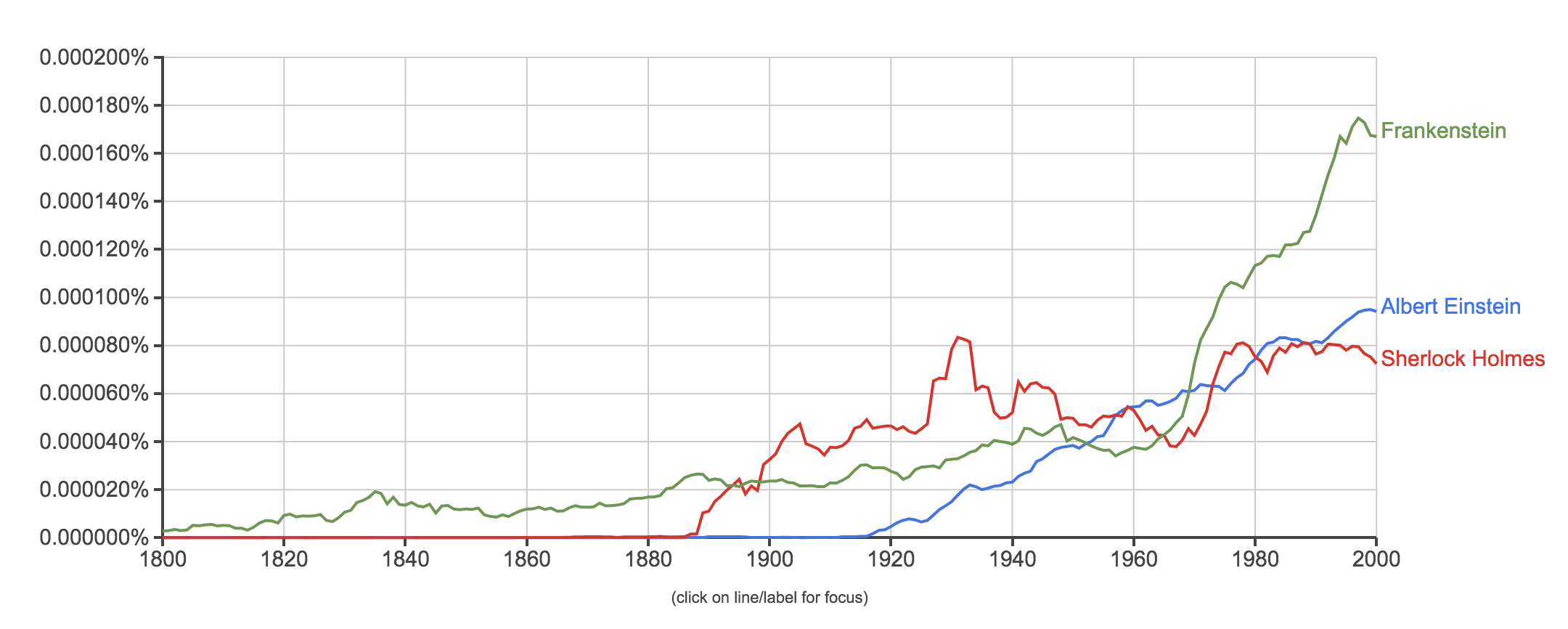
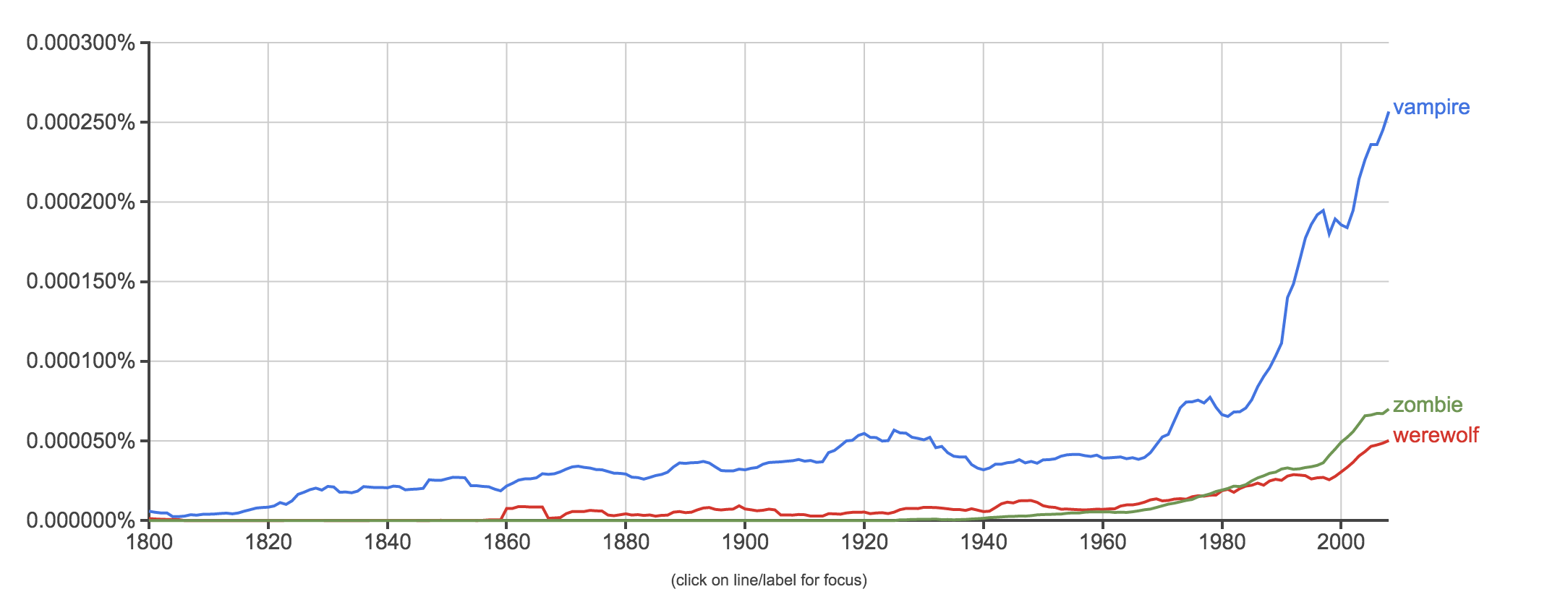

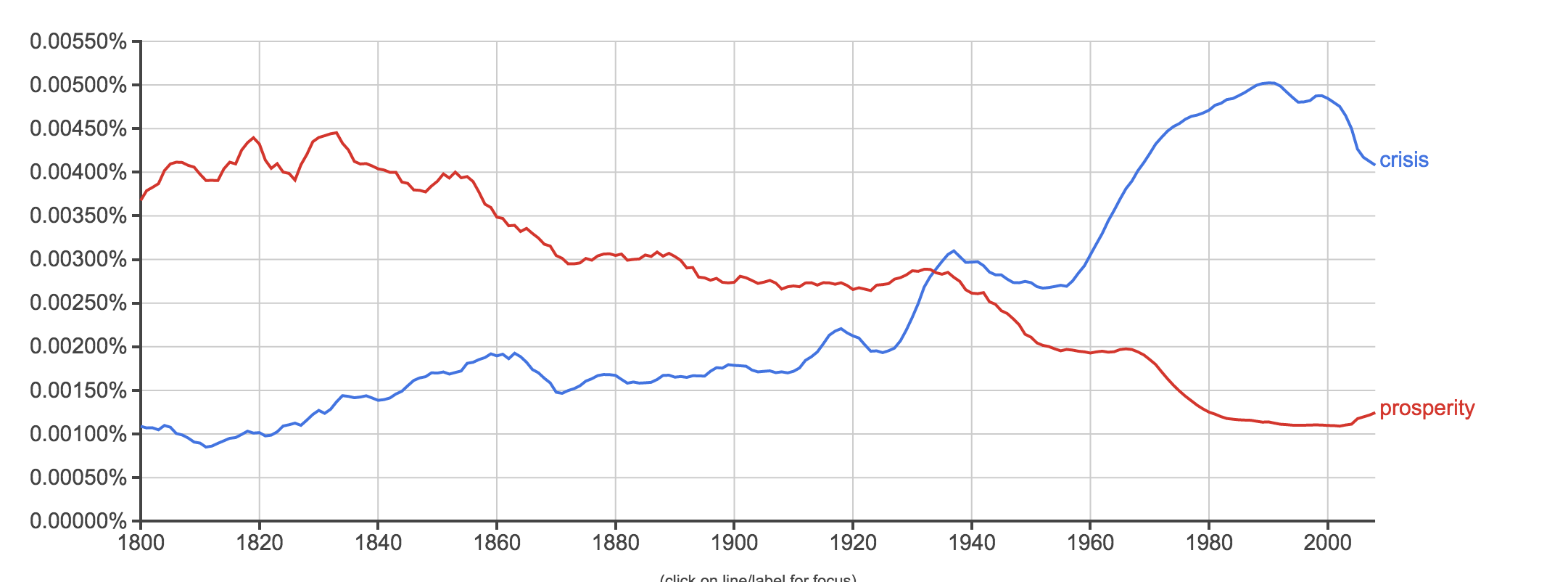
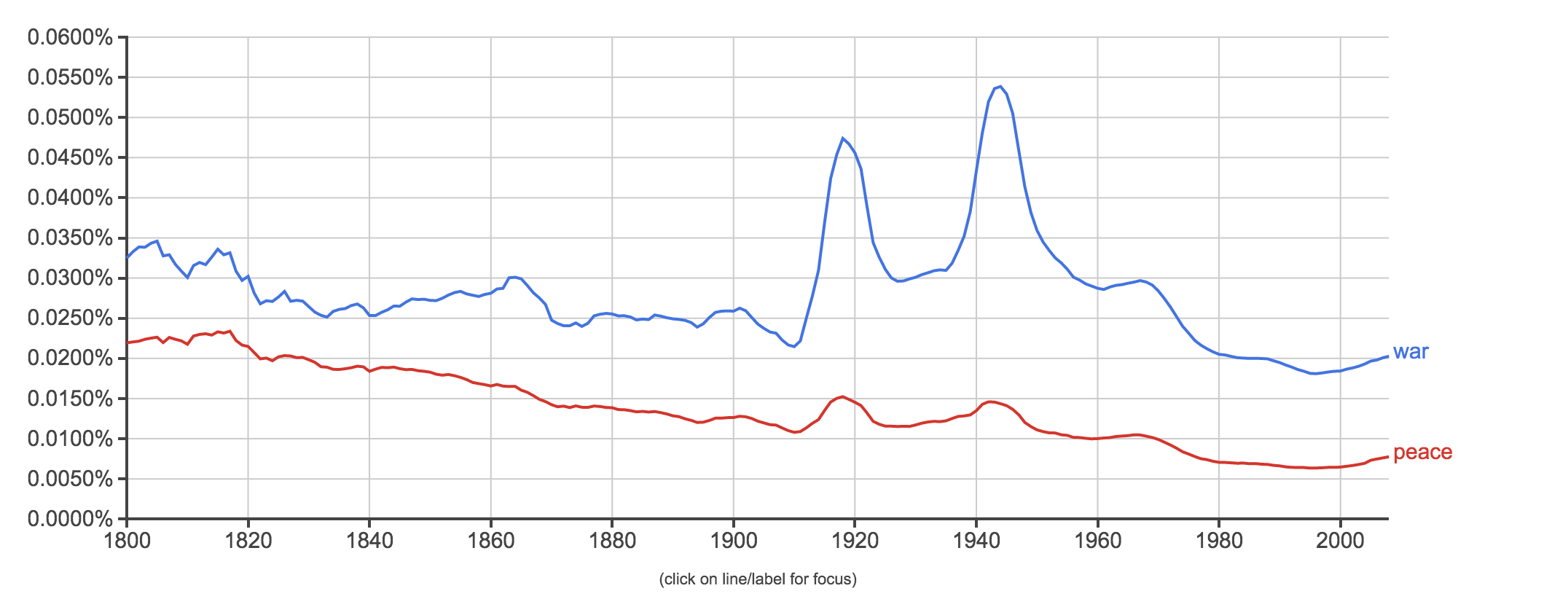
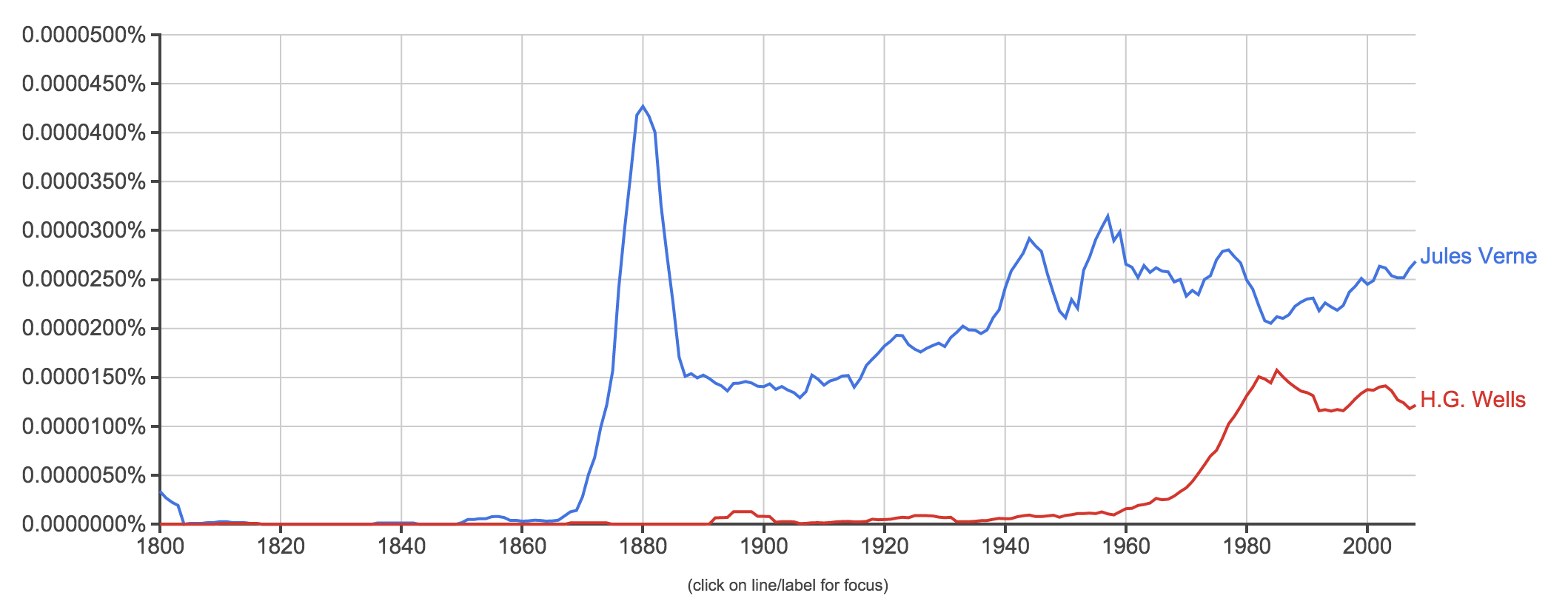
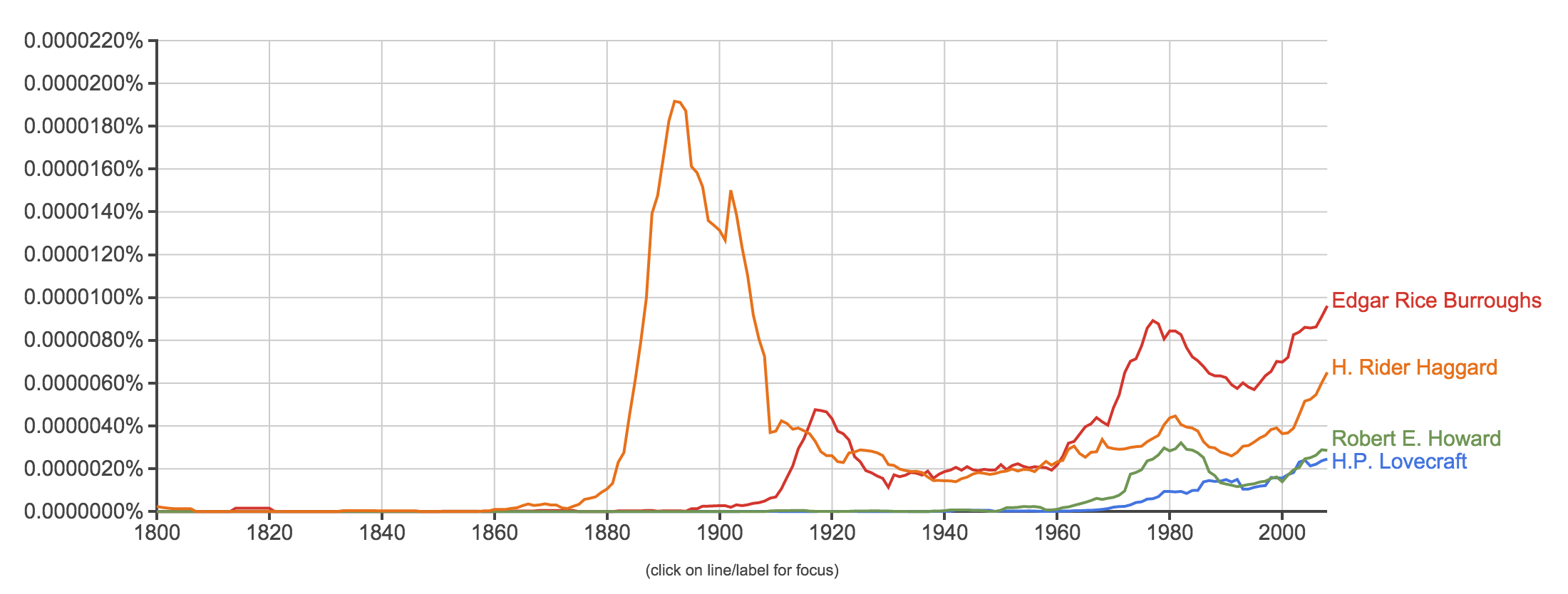
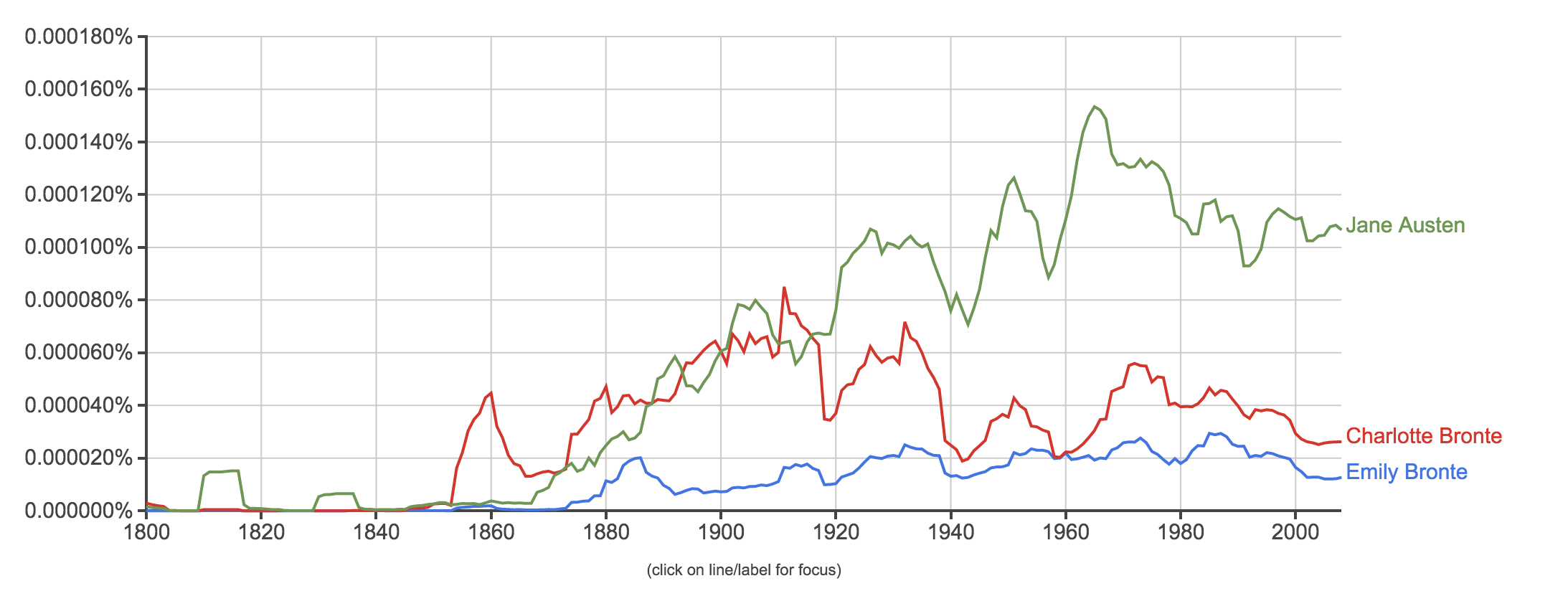
These three almost cross in 1964:
https://books.google.com/ngrams/graph?content=All-White+Jury%2CPacification+Program%2CRapscallion&case_insensitive=on&year_start=1800&year_end=2008&corpus=15&smoothing=3&share=&direct_url=t4%3B%2CAll%20-%20White%20Jury%3B%2Cc0%3B%2Cs0%3B%3Ball%20-%20white%20jury%3B%2Cc0%3B%3Ball%20-%20White%20jury%3B%2Cc0%3B%3BAll%20-%20White%20Jury%3B%2Cc0%3B.t4%3B%2CPacification%20Program%3B%2Cc0%3B%2Cs0%3B%3Bpacification%20program%3B%2Cc0%3B%3BPacification%20Program%3B%2Cc0%3B%3BPacification%20program%3B%2Cc0%3B.t4%3B%2CRapscallion%3B%2Cc0%3B%2Cs0%3B%3Brapscallion%3B%2Cc0%3B%3BRapscallion%3B%2Cc0